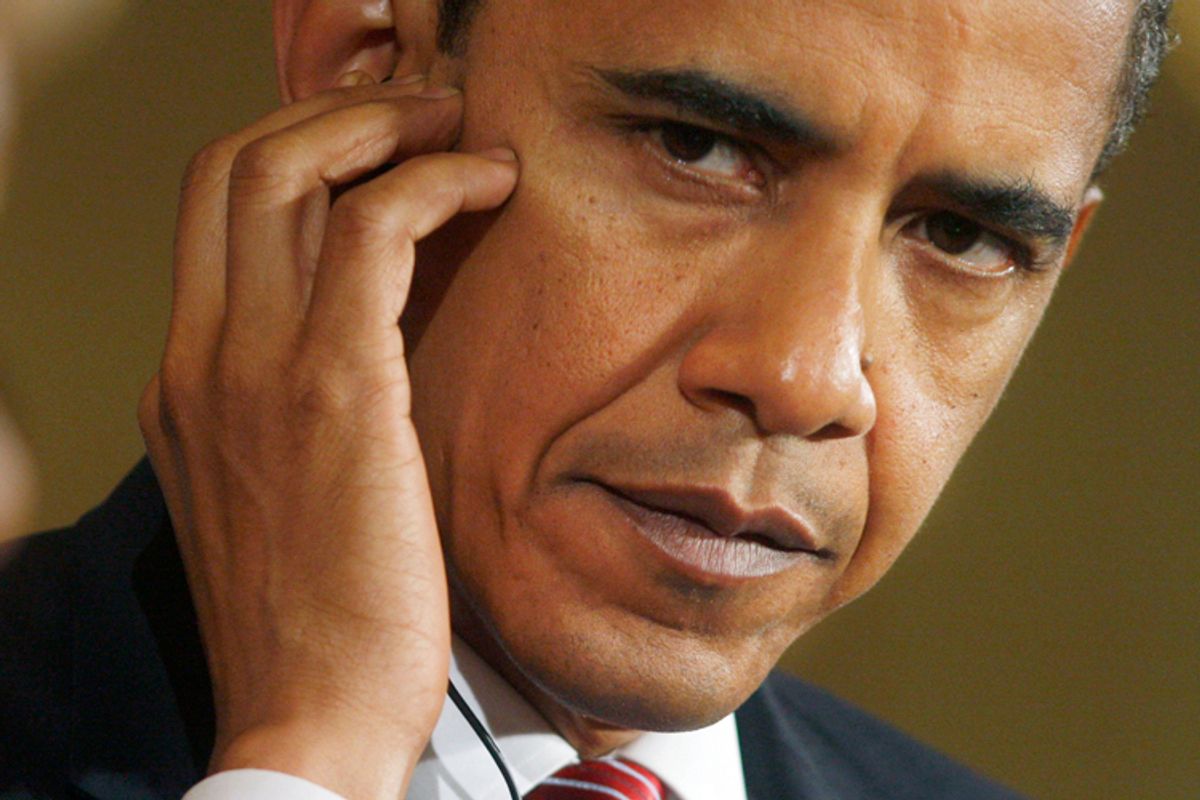Did the surveillance state just take another gigantic Big Brotherish step forward? The New York Times and Washington Post are reporting that the Obama administration is planning to support an FBI plan for "a sweeping overhaul of surveillance laws that would make it easier to wiretap people who communicate using the Internet rather than by traditional phone services."
Facebook posts, Skype calls, Google chats, Apple's iMessage -- under the new plan, every form of Internet communication would have to be accessible to law enforcement wiretapping. Civil libertarians, Internet companies and privacy activists are all understandably unenthused. A blogger at FireDogLake immediately labeled the news proof that Obama intended to support the "end of the 4th Amendment on the Internet."
That's a little overheated. The Fourth Amendment protects against unreasonable search and seizure, chiefly by requiring that search warrants be authorized by a judge and supported by probable cause. According to all descriptions of the new FBI wiretapping plan, if law enforcement wants to listen in on your Facebook chats or Apple iMessages, law enforcement will have to get a court order, just at it would if it wants to wiretap your phone. If society is going to grant government the right to listen in to our old-school phone conversations, it's hard to see how, in principle, it can deny the same right with regard to our Skype calls.
The more pertinent question is whether we can trust our government to responsibly seek those court orders, once it is armed with a massive expansion in surveillance power. The evidence there is not encouraging. On the same day that the news broke of the Obama administration's plan to support expanded wiretapping capabilities, CNET's Declan McCullagh reported that, according to documents obtained by the ACLU, the U.S. Department of Justice just doesn't believe that it needs search warrants "to review Americans' e-mails, Facebook chats, Twitter direct messages, and other private files."
Now we're talking violation of the Fourth Amendment. And if we combine that kind of cavalier attitude toward our constitutionally mandated protections with vastly expanded technical surveillance capabilities, then we've got a real problem. Civil libertarians have a right to be nervous. Expanded power implies expanded opportunities to abuse that power.
FBI Director Robert Mueller has argued for years that the new wiretapping capabilities are necessary to deal with what he calls the "going dark" problem. As we've moved our communications from voice calls to texting and chatting and tweeting, our activities have become less visible to law enforcement. But even that assumption seems highly questionable. We are now generating vastly more data about our activities than ever before, and great swaths of it are available via subpoenas that don't require a judge's approval. One could easily argue that our incredibly detailed digital trails have put more of our lives in the "light" than ever.
So here's why we should be worried about the Obama administration's purported supported for expanded wiretapping. A government that we already know to be overzealous in grabbing our data is using a bogus excuse to justify vastly increased surveillance powers. Yippee.



Shares